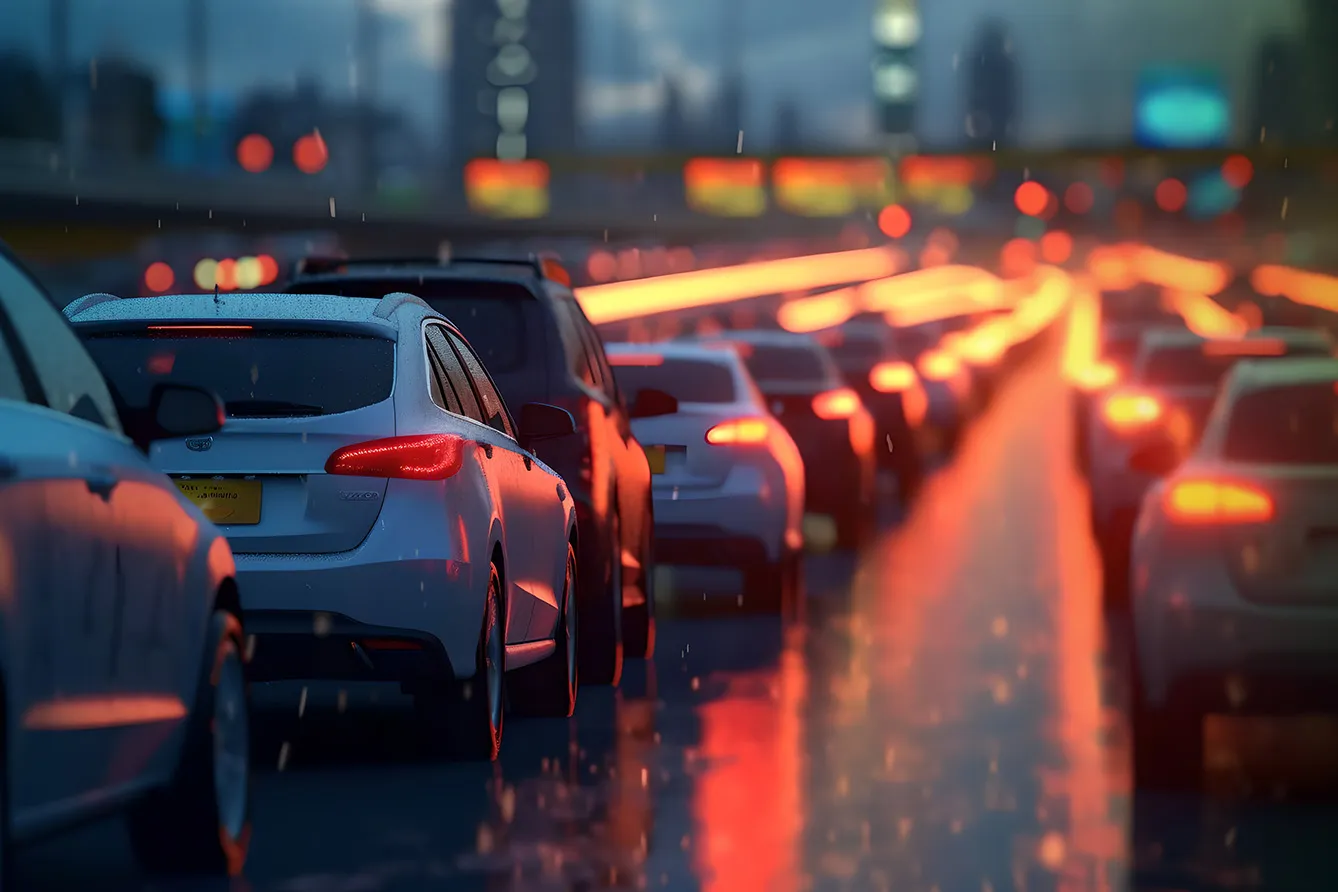As accession talks are delayed, translating into thousands of hours lost in transit, not to mention the economic and social impacts, few seem to worry about the pollution it is causing. Estimates put this at an eye-opening 46,000 tons of CO2 sent into the atmosphere yearly.
Sealed borders = extended wait time
Romania covers roughly 1,100 km of internal EU borders, over 1,800 km of external ones (2nd largest in the bloc), and five tripoints. This is similar to Bulgaria, which has an identical length of intra-EU border coverage, 750 km of external borders, and four tripoints. Given this, repercussions due to delays in the Schengen expansion are rather large-scale. This point was driven home in a recent report by KPMG Romania, which posits that increased waiting times at 32 (out of Romania’s 62) and 24 (out of Bulgaria’s 38) EU border crossings are leading to over 46,000 tons of CO2 emissions yearly – directly into the border regions.
Therefore, even though since 2011, both countries have sought to eliminate physical border checks between themselves and Hungary and Greece, the Schengen adhesion process seems to remain a rather distant hope rather than a close reality. Meanwhile, despite having rather sealed borders, which entails its own economic, political, social, etc. challenges, the flow of movement from the two countries with the largest per capita diasporas in the EU is only growing.
In 2022 alone, there were over 3.1 mln passenger cars, 750,000 buses, and 3 mln trucks entering the two countries from EU Member States, in addition to the over 3.4 mln cars, 800,000 buses, and 3.5 mln trucks exiting. All of this traffic, which during busy periods surpasses over 75,000 per entry point and stretches into queues that are tens of kilometers long, had to wait on average in the last years 30 – 45 minutes (passenger cars), 30 – 110 minutes (buses) and 30 minutes to 72 hours (with an average of 7 hours for trucks).
A staggering environmental cost
These factors all translate into a rather simple equation – the minutes each car, bus, and truck wait mean idle or slow driving. Moreover, without accounting for the trash generated, product spoilage, or any other forms of pollution, just the idling of a relatively medium-aged fleet produces almost 1/10th of Lyon’s yearly emissions (over 46 thousand tons). In turn, this would be the pollution equivalent of generating over 56 mln kWh of electricity through coal-based solutions – enough to cover the monthly consumption of almost 50,000 EU citizens.
If we follow the same logic, apart from the massive carbon footprint of over 3,800 tCO2 per month, passenger cars averagely emit over 26 kg of NO2 per day (almost a ton per month), while trucks reach a total of 755 kg of NO2 per day (almost 24 tons per month). This is why air pollution records that surpass national averages are generally noted close to border regions.
Since the Commission “is also aware that the delayed accession of Romania and Bulgaria may have additional impacts, such as due to the greenhouse gas emissions of vehicles waiting at the border crossings,” we can hope the accession debacle will not last for another decade. Otherwise, we can expect more than one-third of Paris’ yearly emission (half mln tons of CO2, alongside 1/5th of NO2), or its 600 GWh equivalent in coal-generated electricity, passing in no time through the checkpoints as it will move freely across Europe’s air.







